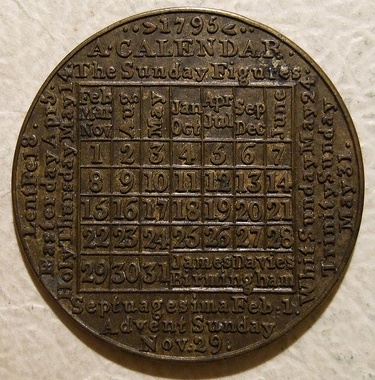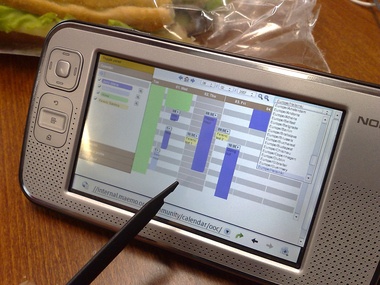And here is exactly where the problem is. Calendars aren’t meant to hold every piece of data that you need for getting things done. There are meant to hold time specific data that if it isn’t done at a certain time that is marked on your calendar, the task dies and it is too late to do. Let’s take a look at 7 different ways that you shouldn’t be using your calendar.
Setting up false due dates
Setting up false due dates will not only clutter your calendar, but will also make you frustrated and possibly even less productive. False due dates are those things that you add to your calendar when you say, “well, I think that I should have this part of my project done by this date here,” and then mark it with your fake due date. What this does is help you put off tasks that are related to that project until you are closer and closer to the date. This isn’t to say that there is anything wrong with milestones, but to put a hard date a piece of a project when it isn’t actually do will most likely set you up for failure.
Time blocking
This is another one of my pet peeves; something that I tried in school that never, ever worked. Time blocking is the idea of setting a portion of time in your calendar to devote to one specific thing that you need to get done. Maybe you have some work that you have been meaning to get done for some time now, so you “block” out 3 hours of your day to work on that one specific thing. Now, if you actually get through the 3 hours of working on that one thing that you need to do, you are a much better human than I and most others. The reality is that if you are a “knowledge worker” the chances of blocking out a portion of time to work on one thing is somewhat unrealistic and almost always gets ruined by something else that comes up. Instead of time blocking, try something like the Pomodoro technique or just starting a task or project with no expectation of how much you are going to work on it.
Checklists
People love lists, but calendars are not at all where they belong. If you are finding yourself putting things like, “make lunch, take out puppies, grab wallet, grab watch” etc., as calendar items or notes of a calendar item, consider using a checklist application or a simple piece of paper to keep track of this data. What I have found, is that if you aren’t actually checking things off the checklist and just looking at the items on your calendar, sooner or later you are going to overlook something. Sorry, but checklists are meant to be checked.
Taking notes
Some people take meeting notes or notes during an even on their calendar within the calendar’s notes field. This is not bad place for putting more information about an event in your calendar, like a description of the place where your meeting is, or a little reminder of what the meeting attendees names are. But, this isn’t the place for full fledged meeting notes. Try taking notes on paper or in a dedicated note taking programming (even a mass of text files will do). These are easier to link to or access later, rather than going into your calendar program.
As a ubiquitous reminder repository
This is an extension of the last two points. A calendar is meant for time and day specific things like meetings and tasks that must absolutely (and can only) be done on a certain day. Keeping all kinds of little pieces of data like reminders of things that need done in your day or even just information about something doesn’t really belong in your calendar. Once again if you need reminders of things try using a task management app and if you need to store information related to projects and things that need done, this type of data better belongs in a text file or even personal database.
Keeping track of standard events
This is something that I found myself doing up until just a few weeks ago; putting standard events like “Work” in my calendar. I think that this was to make myself “seem” more busy than I actually was. I mean why would anyone have to block out 8 hours everyday that says “Work” on it? I say if you have something standard that you do everyday like Work or go the gym or whatever, don’t clutter your sacred calendar space with it.
Not using it
And of course the most important way you shouldn’t be using your calendar is not using it! Hopefully by now you realize that your calendar is like a holy place, it is reserved for things that are going to “die” if they aren’t handled at the certain time or day that they are placed on the calendar. And because of this realization, not using your calendar to keep this type of information is setting yourself up forget things and not get these important things done.

